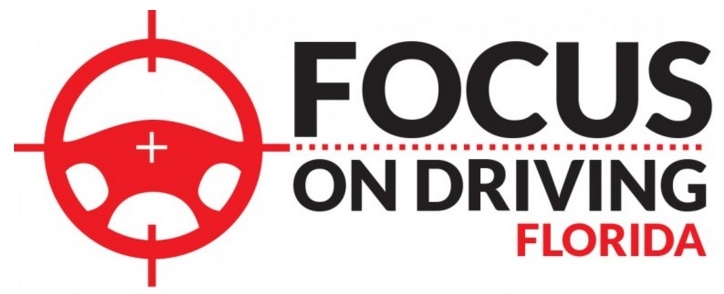April is National Distracted Driving Month
April 22, 2016 | Category: Automobile Accidents, Motorcycle Accidents, Truck Accidents, Wrongful Death | ShareThe Florida Department of Highway Safety and Motor Vehicles (DHSMV) is reminding motorists throughout the month of April to not drive distracted in its program “Focus on Driving Florida.”
 The numbers are significant. In 2015, DHSMV reports that there were more than 45,700 distracted driving crashes in Florida resulting in more than 39,000 injuries and more than 200 fatalities. Of all the crashes in Florida last year, 12.2 percent were the result of distracted drivers, of these 7.4 percent were fatal crashes and 15.4 percent resulted in injuries. DHSMV says that the age group with the largest number of distracted driving crashes was 20–24 year-olds (17.8 percent), followed by 25–29 year-olds (14.3 percent) and then 15–19 year-olds (11.6 percent).
The numbers are significant. In 2015, DHSMV reports that there were more than 45,700 distracted driving crashes in Florida resulting in more than 39,000 injuries and more than 200 fatalities. Of all the crashes in Florida last year, 12.2 percent were the result of distracted drivers, of these 7.4 percent were fatal crashes and 15.4 percent resulted in injuries. DHSMV says that the age group with the largest number of distracted driving crashes was 20–24 year-olds (17.8 percent), followed by 25–29 year-olds (14.3 percent) and then 15–19 year-olds (11.6 percent).
ABC Action News in Tampa reported that on April 1, 2016, a distracted driver hit a mother and her 3 children as they walked along a Brooksville, FL road. The mother was walking with her 1 year-old, 3 year-old and 6 year-old along Neff Road. Authorities said the driver became distracted after dropping his cigarette. As of the news report, the mother was in stable condition, but two of her children were in critical condition.
What is distracted driving?
There are categories of distracted driving according to DHSMV. These categories are:
- Visual – Taking your eyes off the road
- Manual – Taking your hands off the steering wheel
- Cognitive – Thinking about anything other than driving
When driving, it requires a driver’s full attention to safely control his/her vehicle while also being able to respond to any events that may be happening on the road around him/her. The AAA Foundation (American Automobile Association) defines distracted driving as any activity that could divert a person’s attention away from the primary task of driving. All distractions endanger driver, passenger, and bystander safety.
Thinking about distractions may bring to mind cell phone use and texting, but the National Highway Traffic Safety Administration points out that there are many more distractions. Some examples are:
- Drinking and/or eating
- Conversing with passengers
- Personal grooming
- Viewing maps or reading
- Use of a navigation system or PDA(personal digital assistant)
- Viewing a video
- Adjusting radios, CD players, or Mp3 players
What does the law say about distracted driving?
Florida became the 41st state to pass a motorist texting while driving ban in 2013. Texting is a secondary infraction meaning that the officer must first pull you over for another traffic offense in order to ticket you for texting. (There are no other specific Florida distracted driving laws dealing with other distractions.)
Under Florida law (768.81 Comparative fault) should an individual cause an accident because he/she was texting or speaking on a cellphone, that driver may be considered negligent. Negligence is defined by Florida law as the failure to exercise reasonable care while driving. Plaintiffs in these cases must demonstrate the following elements:
- the defendant owed the plaintiff a duty of care;
- the defendant breached this duty;
- the breach resulted in an accident; and
- the plaintiff suffered damages as a direct result of the defendant’s breach.
There are ways that can reduce distractions while driving. These, according to Consumer Reports, include:
- Mapping out the route to the destination so the driver does not have to look at a smart phone for directions.
- Familiarizing oneself with the vehicle’s controls so the driver does not have to fiddle with touch screens or knobs while driving.
- Silencing the phone to reduce the urge to respond to text messages, calls or other notifications that sound off.
- Skipping the drive-through to resist the temptation to eat or drink in the vehicle.
- Applying makeup or shaving at home.
“If you or a loved one is injured in an accident with a distracted driver, contact the experienced attorneys at Spivey Law Firm, Personal Injury Attorneys, P.A. to determine your rights,” said Fort Myers Vehicle Accident Attorney, Randall Spivey.
Fort Myers Personal Injury Attorney, Randall L. Spivey is a Board Certified Civil Trial Attorney – the highest recognition for competence bestowed by the Florida Bar and a distinction earned by just 1 percent of Florida attorneys. He has handled over 2,000 personal injury and wrongful death cases throughout Florida. For a free and confidential consultation to discuss your legal rights, contact the Spivey Law Firm, Personal Injury Attorneys, P.A., in Lee County at 239. 337.7483 or toll free at 1.888.477.4839, or by email to Randall@SpiveyLaw.com. Visit SpiveyLaw.com for more information. You can contact Spivey Law Firm, Personal Injury Attorneys, P.A. in Charlotte County at 941.764.7748 and in Collier County 239.793.7748.

